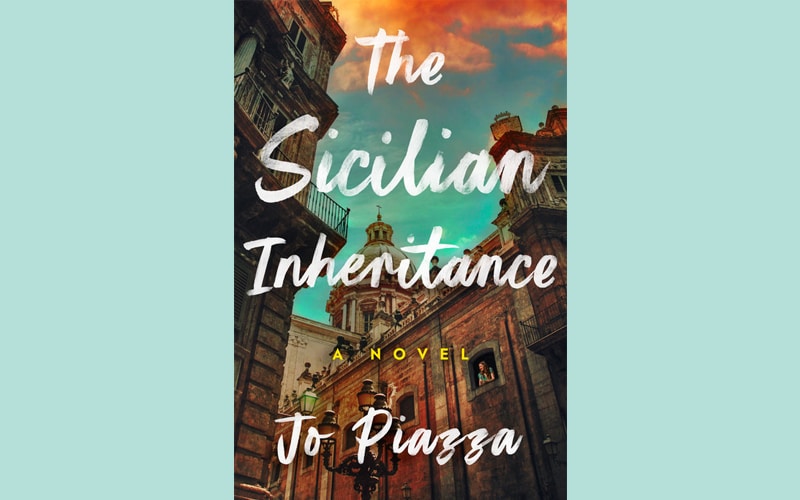If a historical murder mystery set in Sicily and featuring badass women across multiple generations doing it for themselves in spite of convention and circumstance sounds good to you, then there are some good reasons to pick up Jo Piazza’s latest novel. If, however, what you’re looking for is a piece of beautifully crafted prose, it’s likely you’ll find The Sicilian Inheritance wanting. This reader’s view: if you can overlook some clunky dialogue and an irritating dead great-aunt, there’s enough fun to get you to the end with a smile on your face.
The Sicilian Inheritance is a tale of two women called Serafina. The first, Sara, is a butcher-turned-chef-turned-restaurateur from Philadelphia. Faced with a failing marriage and the impending bankruptcy of her over-ambitious restaurant, she is sent on ‘an adventure’ by her dead great-aunt Rosie, with whom Sara had long meant to visit the ancestral home in Caltabellessa, Sicily. The trip has two goals: to learn whether a disputed land deed could be the solution to Sara’s financial woes; and to discover more about the mysterious death of Rosie’s mother, the second (but the original) Serafina. Needless to say, as the book switches between first-person narration by the two Serafinas, and between the 2020s and the 1910s, we quickly realise that the land and the death are interrelated, and that there is much, much more than meets the eye about both the life and death of Serafina.
My main issue with the novel is that the Sara sections are noticeably patchier in quality than the Serafina sections. Sara’s dialogue when interacting with her estranged husband and daughter is weak; the recollections of aunt Rosie make Rosie out to be both implausible and disgustingly obnoxious; and due to the fact that everything happens to Sara within the space of a few days, the characters and plotting are sketched out but without being evocative in the noiry way I think Piazza would have liked. Conversely, the segments dealing with Serafina, her desire to escape the shackles of conventional feminine roles through education, her relationships with the men in her life and, more importantly, with the other women liberated by their husbands’ departures to the mainland or America, are both historically interesting and personally engaging.
Ultimately, if you can block out the voice of aunt Rosie, The Sicilian Inheritance is a fun read. Caltabellessa, and Sicily itself, emerge in vivid – if sometimes caricatured – shapes, and there’s enough impact in the final twist to give the mystery’s resolution a satisfying jolt. I enjoyed it, even if it annoyed me a bit. And that’s ok.






Click here to change your cookie preferences